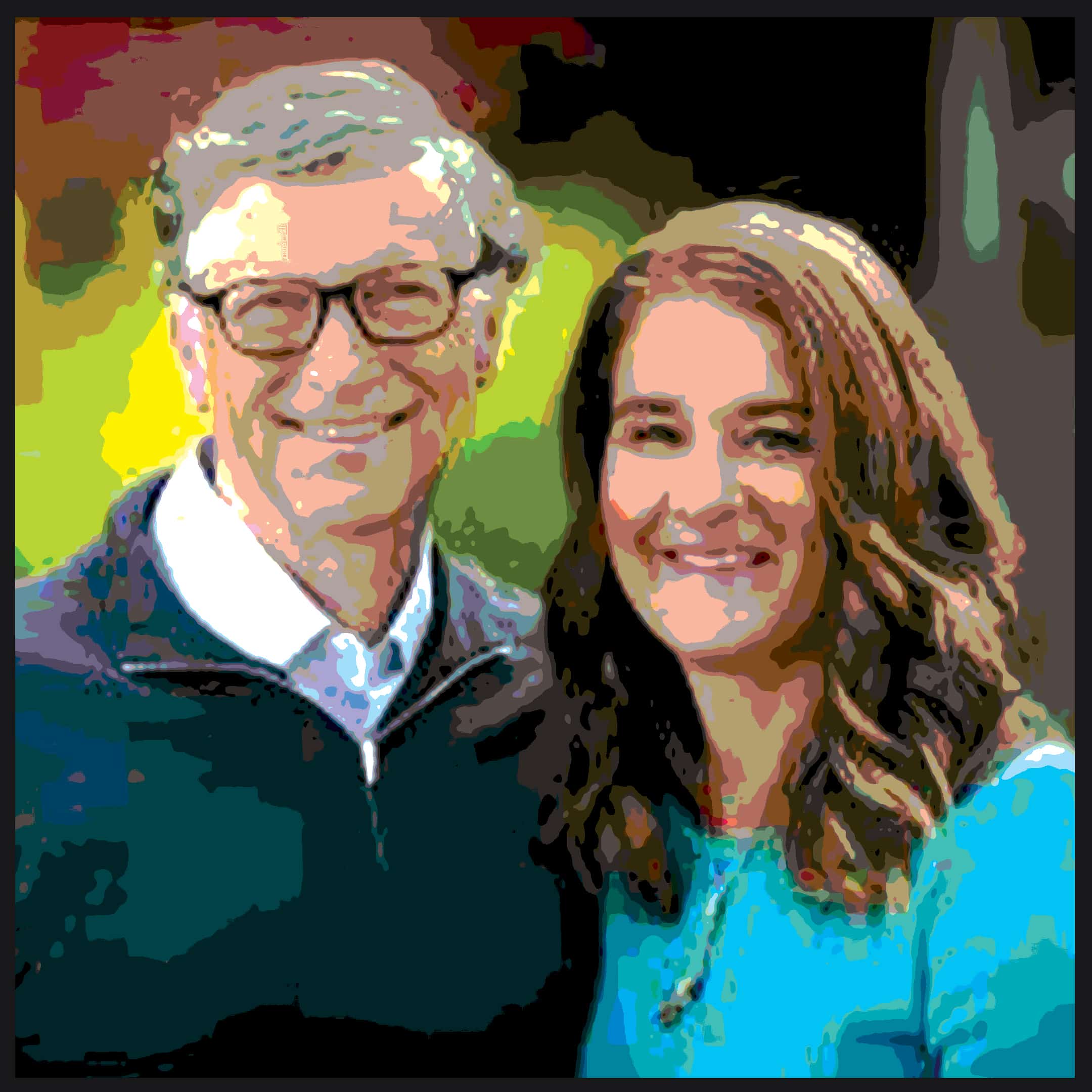“The current…generation and disposal of synthetic polymers are largely unsustainable. As part of the solution, the development of biodegradable polymers…has been intensively pursued in the past two decades. However, the degradation of such polymers in Earth’s landfills typically leads to no recovery of the materials’ value, and their degradation in the Oceans could create new or unintended environmental consequences…The proposed more sustainable solution is to develop chemically recyclable polymers that not only solve the end-of-life issue of polymers, but also provide a direct approach to establish a circular materials economy.”
Miao Hong, Eugene Y-X Chen, Chemically Recyclable Polymers: a circular economy approach to sustainability
Eugene You-Xian Chen is too busy saving the world to bother talking about himself, so you will have to get to know him through his work.
Infinitely recyclable plastic was said to be impossible. Making polymers out of Gamma-butyrolactone, or GBL, was said to be impossible. Now you know who Chen is: he’s that guy who doesn’t necessarily rely on secondhand information – he prefers to check it out for himself. What he found was that both of these so-called facts were incorrect, and from there he found the solution to making plastic infinitely recyclable. He challenged currently held beliefs; he ignored the label indicating that something was “impossible”; and he spent his last 20 years trying to be part of the solution to our currently unsustainable materials-heavy economic model. I haven’t even met him, and I like him already.
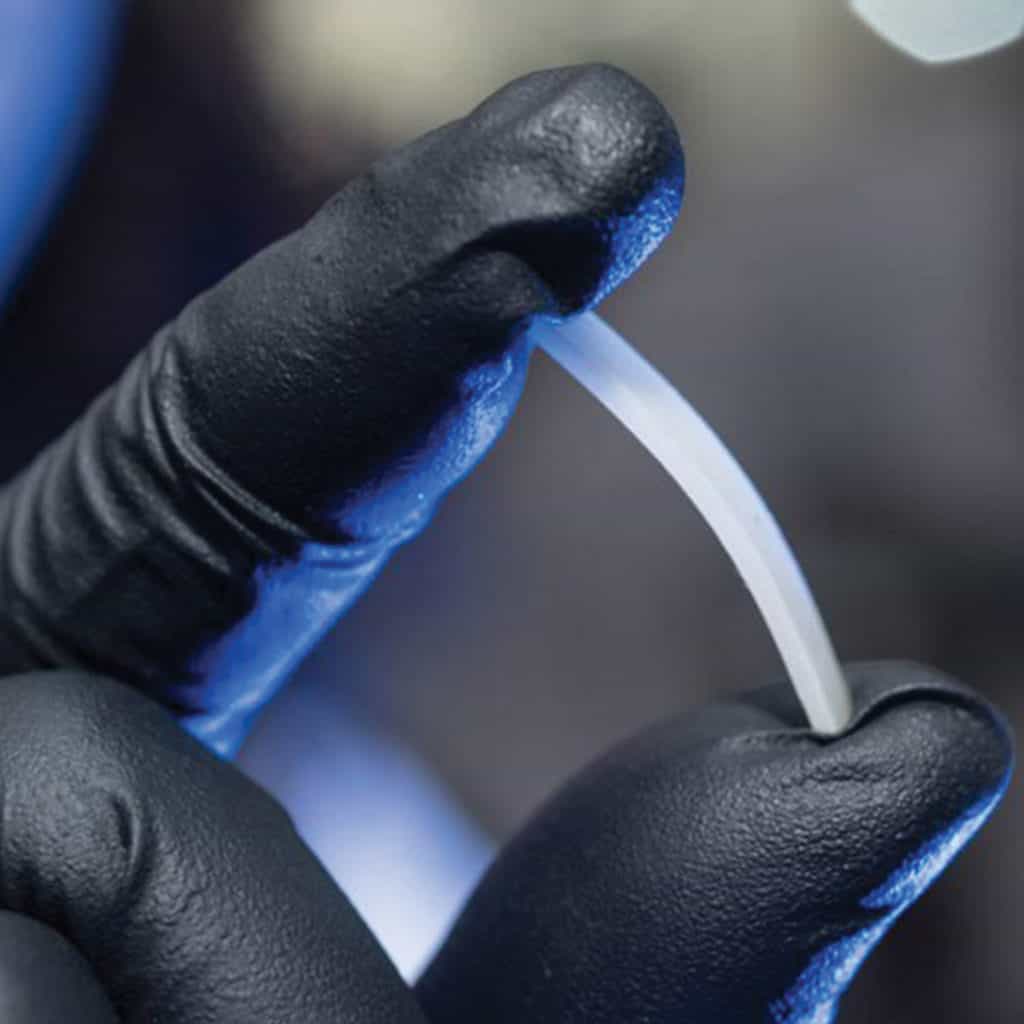
After receiving his Ph.D. from University of Massachusetts, he joined the faculty of Colorado State University, where he currently holds the position of University Distinguished Professor and John K. Stille Endowed Chair in Chemistry. His Chen Research Group pursues many sustainable solutions, but the big one for this moment in time is making single-use plastics infinitely recyclable.
Chen makes it clear that “it would be our dream to see this chemically recyclable polymer technology materialize in the marketplace.” The Third Option would love to make his dream come true as well, in every American community (for starters). T3O has been following Chen for several years now – he first discovered the recyclable polymer in 2015 – and Chen and his research group have continued to work every day to improve upon the infinitely recyclable plastic he and his team originally discovered. So far, the private sector has taken a pass on utilizing his discovery – understandably, maximizing profits must take precedence over the health of people or planet – but luckily, The Third Option is designed to work through the U.S. government, whose mission statement clearly lists people as a top priority.
T30 recognizes the importance of Chen’s work, and is ready to bring it to the United States (and then to the world).
Here is how we would do it:
- Build this recyclable plastic business from the ground up, with a loan from our National Public Bank. Whatever we loan to ourselves, we would then pay back to ourselves through the sale and use of these recyclable plastic products (and whatever we pay back to ourselves, we split amongst ourselves later; banks are really pretty cool, when you own one).
- Remove any profit (or C-Suite salaries) from our P&L statement. This business is owned by the American people, who have no interest in overcharging themselves; in other words, it’s going to cost what it’s going to cost, and nothing more.
- Use Economies of Scale to bring the cost of production down an average of 80%. Our plan is to bring infinitely recyclable plastic to the world, so the “scale” of this project could not be any larger.
- Utilize the cost-effective nature of “infinite” recyclability (translation: a little bit of this plastic goes a long way.) There is a famous light bulb (installed in 1901) that has lasted 130 years so far, because it was created before the private sector figured out how to make stuff so it breaks, and you have to re-purchase it over and over. 130 years is nowhere near “infinite”, but is still long enough to give this “Centennial” bulb a “cost effective” rating. If all goes as planned, this plastic will be plenty cost effective as well.
- Employ free labor by using our children on this business venture.
The Third Option plan (which would also help fund Public Education), is to have our children pay back their $360k education through working on many sustainable businesses throughout their twelve years in school, one of them being the infinitely recyclable plastic business. At a rate of at least $15 per hour, deducted from their Public Education “bill”, students could help in many essential needs areas, which would also leave them with an Associate Degree in one of those fields by the time they left high school.
Here is a potential business plan:
- Create an account for all citizen’s participating in our infinitely recyclable plastic program. Each participant would then receive a “plastic” credit card (that also happens to be made out of plastic).
- Charge customers *Full Price for any plastic cup, container, bottle, or straw purchased during a food or beverage transaction. These purchased plastic items are automatically tallied when cashiers ring them up, and get recorded in each person’s “account”. [*Full price means the cost of the plastic, plus a small amount for the business that sells it (in order to entice them into using it), plus the cost to recycle the item, plus a small “retrieval” fee, which will be given to whoever brings the plastic back]
- Position plastic “ATMs” all over the community, where anyone can swipe their “plastic” credit card, then deposit any used plastic item into the machine, and receive “credit” for it.
- The next time anyone purchases food or beverages that utilize this plastic, their “plastic account” will show whether they have returned any items or not. If they did return something, they would not need to purchase any new plastic (they will have a “credit”). If there is no “credit” recorded, the customer would need to pay the Full Price of the plastic again, tacked onto their purchase.
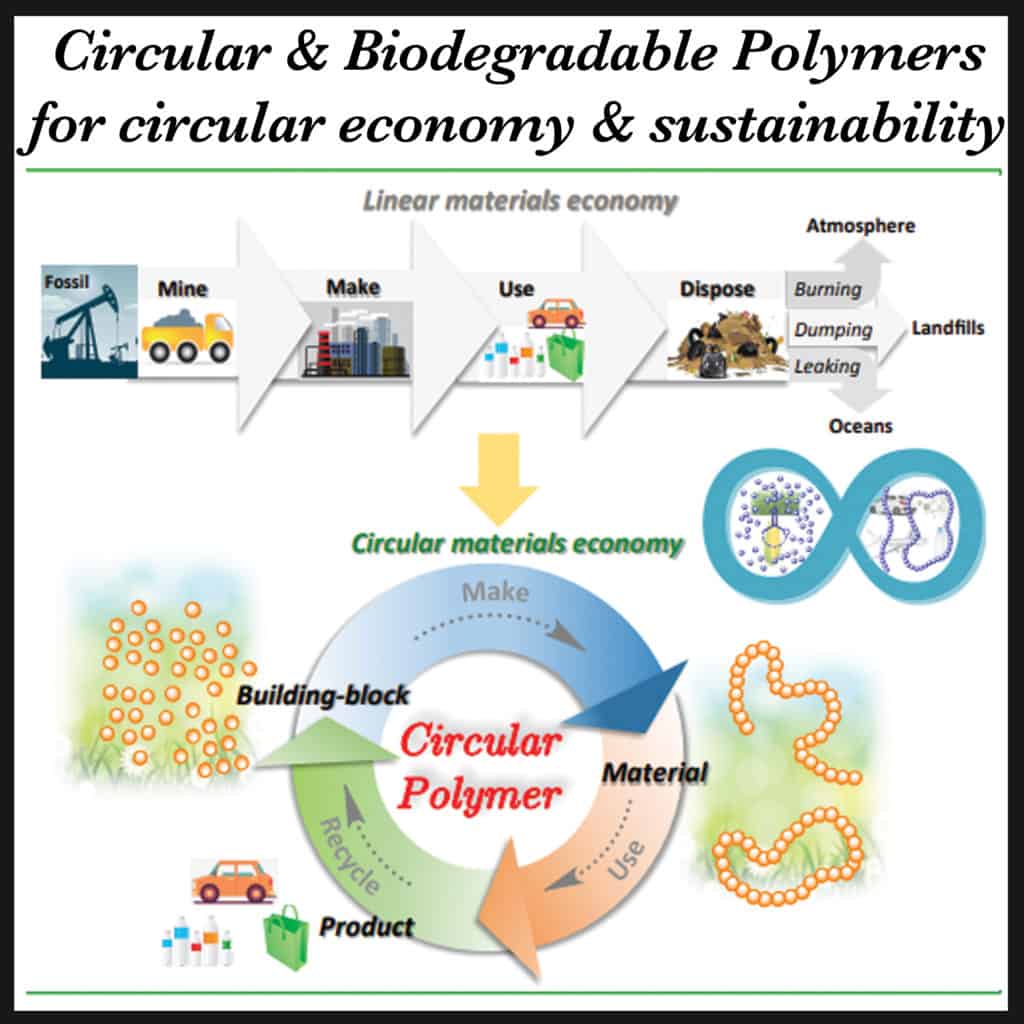
The advantages of this system?
- If people would rather exercise their liberty in the worst possible way (which Americans are prone to do), and throw their plastic in the street, at least we we’d all make lots of money from them doing this.
- Meanwhile, when other citizens pick up plastic and deposit it into their account, they are receiving “extra credit” for helping infinitely recyclable plastic remain infinitely recyclable. (Remember, there is a small fee added to original plastic purchases, which would get recorded on the card.)
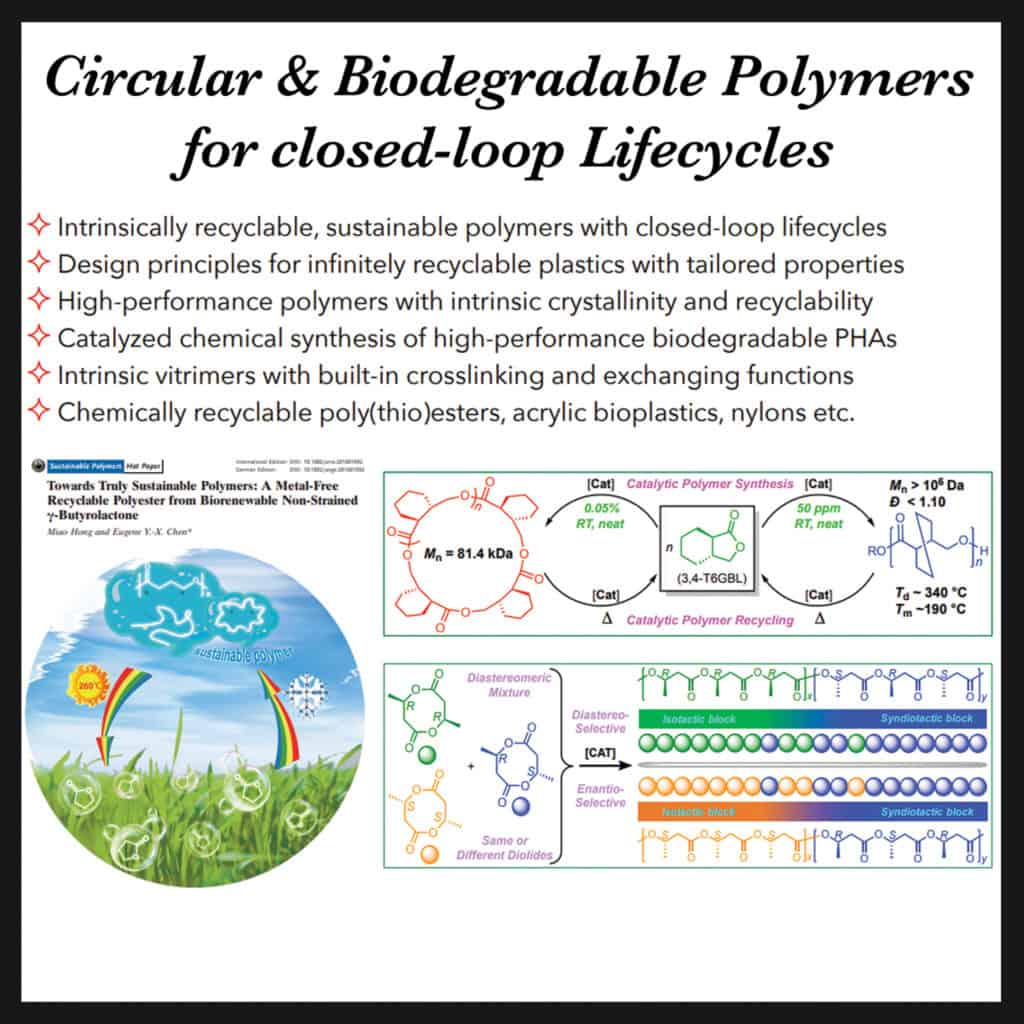
If The Third Option ever gets their hands on the government, it would put a tax on all the old-school un-recyclable plastic in order to cover the cost to collect it. Most so-called recyclable products are either not recyclable at all, or not profitable for anyone to recycle (meaning the private sector is happy to produce this plastic, but has no desire to clean it up). The Third Option could take some of this plastic to put into our roads (10% could be mixed in with the asphalt), some could go into our concrete sidewalks, as a binder (about 6%), and maybe Dr. Chen could help us figure out how to transform some it into a clean biofuel. The rest could be turned into plastic “bricks” for housing or shelters. Ultimately, there is not enough use for it, so we simply have to stop producing it, the sooner the better.
We would like to thank Eugene Chen and his crew for their efforts to keep Planet A inhabitable, until Planet B has been built and is ready for human habitation (maybe Eugene can start that project next).
For more on Dr. Chen’s work, click this link.

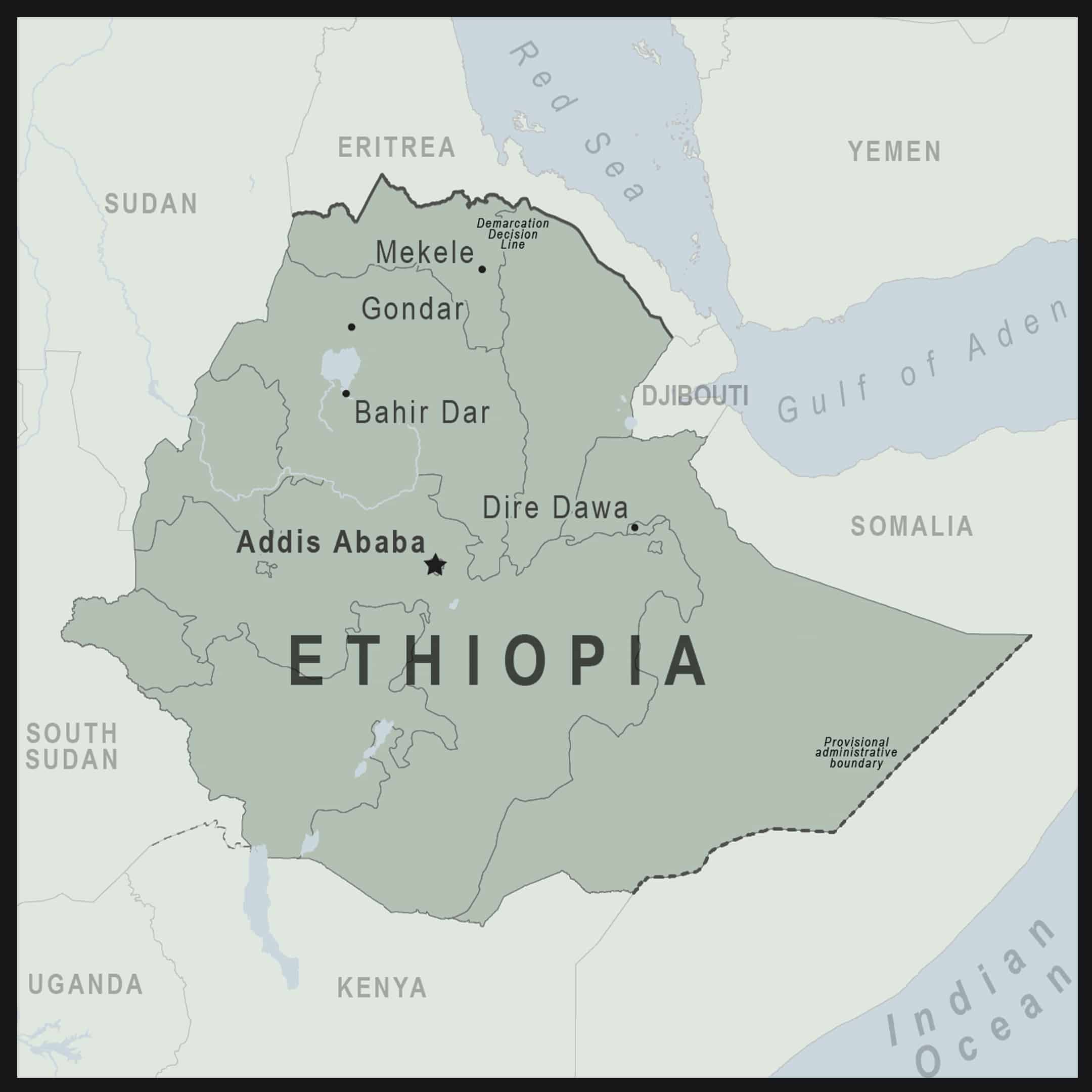 ETHIOPIA
ETHIOPIA